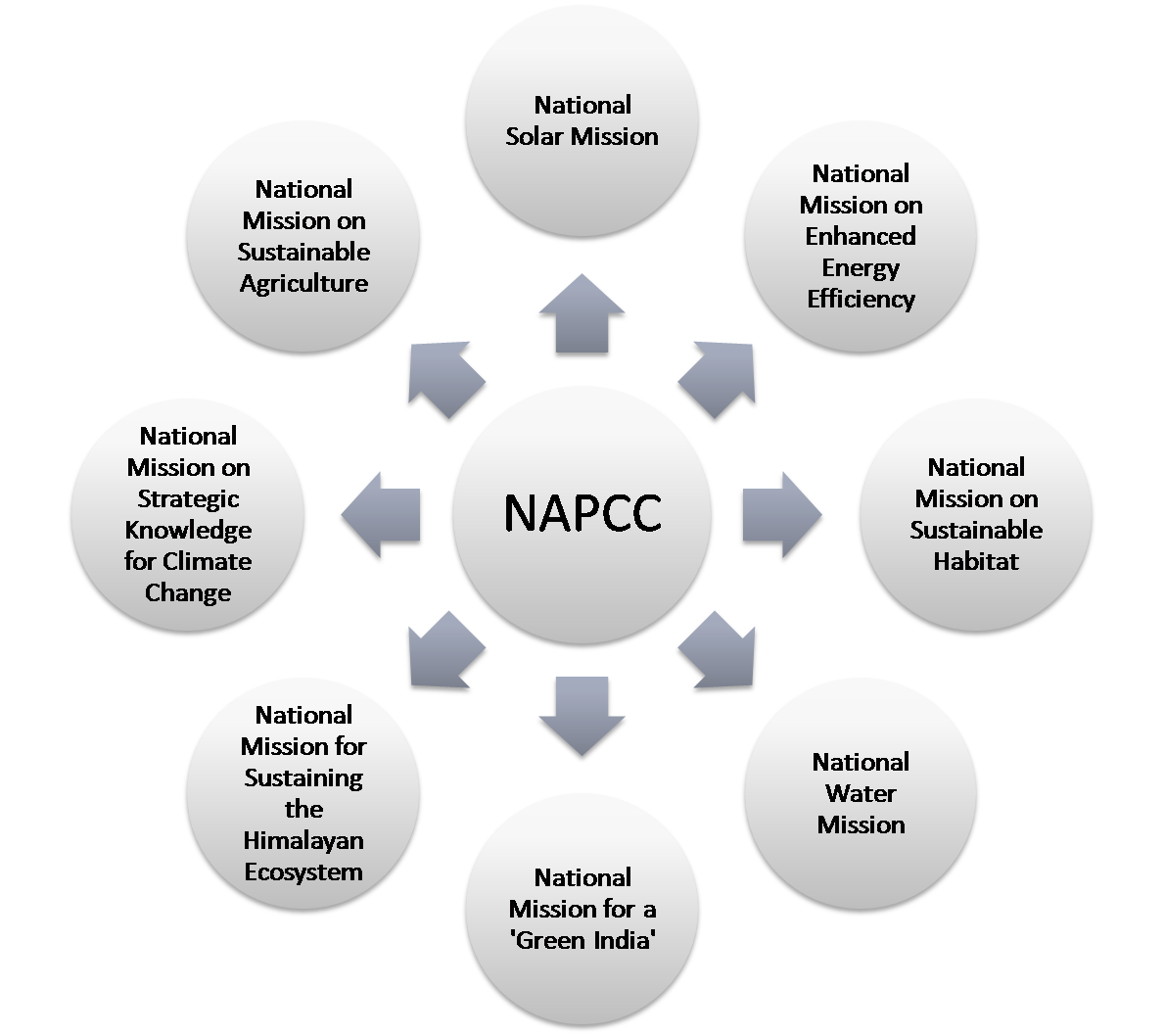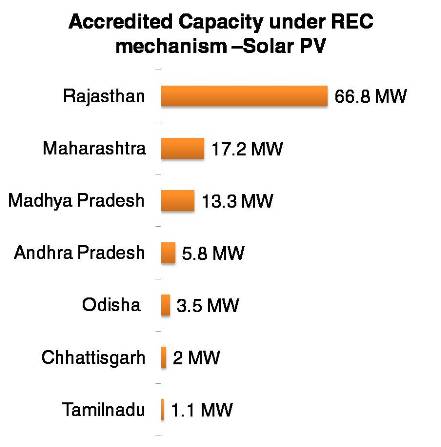Biomass cogeneration scenario in the State of Maharashtra and benefits of Renewable Energy Certificates
 The concept of simultaneous generation of electricity and thermal energy is called cogeneration. It produces two forms of energy from a single fuel source. One of the forms of energy must always be heat and the other may be electricity or mechanical energy.
The concept of simultaneous generation of electricity and thermal energy is called cogeneration. It produces two forms of energy from a single fuel source. One of the forms of energy must always be heat and the other may be electricity or mechanical energy.
As per the cogeneration association of India, there are many industrial sectors that have good potential for cogeneration. Industrial units in following sectors should take advantage of cogeneration technology – Sugar, Paper, Oil Extraction, Urban Waste Treatment, Forest based Industries, Chemicals Fertilizers, Metallurgical Industries, Textiles-Cotton & Synthetic, Hotels, Rice Milling, Food Processing, Rubber Industries, Petroleum & Refineries and Malt & Brewery Industries.
In Maharashtra, most of the cogeneration plants are developed by Sugar factories as they have enough quantity of bagasse – a by product of sugar production. Therefore mostly all sugar factories involve cogeneration system which use bagasse as fuel (renewable source of energy) in order to meet power and steam requirements of the production process. Besides this, it also provide excess power to the grid or use for other purpose like captive consumption for other industrial use.
Promotional policy for the cogeneration and other biomass based power projects by the Government
- Indian Renewable Energy Development Agency (IREDA) provides loan for setting up biomass power and bagasse cogeneration projects.
- The Ministry of New & Renewable Energy (MNRE) GoI, has been supporting the Cogeneration power projects by giving back ended subsidy. The 50 % subsidy will be released for sugar factories developing Cogeneration power projects in cooperative sector / public sector /government under taking/ SPV company (Urja Ankur Trust) through BOOT model after issuance of purchase orders for larger equipments like boiler, turbine etc. The remaining 50 % subsidy could be availed after commissioning of the project and demonstrating its continuous operation for 90 days (3 months) from which 72 hours the plant should run with 80% PLF.
- For private sector, a one time subsidy will be released after commissioning of project after assessment of performance of the plant.
Overview of Renewable Energy Certificates: Renewable Energy Certificates are a type of environmental commodity intended to provide an economic incentive for electricity generation from renewable energy sources. One REC is created when one megawatt hour of electricity is generated from an eligible renewable energy resource. REC represents the environmental attribute associate with unit of power produced.
Eligibility of cogeneration power plants under the REC mechanism: If sugar mill has a biomass cogeneration based power plant, they are eligible to earn RECs subject to these power plants are grid connected and have PPA with DISCOM at APPC price (As per the CERC guidelines, the power producer has to sign a PPA with the state utilities at a price equal to the Average Power Purchase Cost price. The APPC price for a state for a particular time period is determined by the State Electricity Regulatory Commissions). Grid connected cogeneration power plants that provide electricity for captive uses are also eligible to earn RECs.
Following points will elaborate about the procedural requirement for biomass cogeneration plants under the REC mechanism –
- Make required documents ready to apply under the REC mechanism such as Land ownership documents- Sale or lease deed as applicable, Power Purchase Agreement (PPA), Power Evacuation Approval, Metering Details, Commissioning certificates, etc
- Sign up/Register as a new RE generator on REC website- the Web Based Application developed by Central Agency. Fill online application form on REC registry of India. The link is available here. Take the print out of the form and submit it to State agency (Maharashtra Energy Development Agency is accredited as a state agency for REC related matters in Maharashtra) along with application processing fee.
- Applicant need to submit fees as per the order of State and Central agency. Relevant fees are as follows – application fees per application payable at the time of submitting application of Rs. 5,000, One time accreditation charges per application upon grant of accreditation of Rs. 30,000, Annual charges for accreditation per application payable by April 10, for each fiscal year (or each anniversary date for date of initial accreditation) of Rs. 10,000, Accreditation charges for revalidation/extension of validity per application payable at the time of revalidation/extension of validity of existing accreditation at the end of five year of Rs. 15,000. Details can be accessed from here
- The Central Agency through REC registry website assign a unique acknowledgement number to the Applicant for each application for registration of its RE generation project, for any future correspondence. State agency (MEDA) will notify the RE generator about the accreditation of their project after successful verification of all documents and other details.
- After accreditation, apply for the registration to NLDC (Central agency). After receipt of application for registration, the Central Agency undertakes preliminary scrutiny to ensure application form is complete in all respect. After conducting the preliminary scrutiny, the Central Agency shall intimate in writing to the Applicant for submission of any further information, if necessary.
- The Central Agency, after duly inspecting/verifying all the details, grant ‘Certificate for Registration’ RE generator confirming its entitlement to receive Renewable Energy Certificates.
- After the registration, submit Power Injection Report periodically. Central agency release REC in RE generators online account based on the injection report. These REC can be traded on Indian Energy Exchange to the obligated entities.
Details procedures can be accessed here
Pricing of REC under Solar and Non-Solar Category
From 1st June, 2010, above determined forbearance price and floor price were valid for the control period up to FY 2012.
|
Non solar REC (Rs/ MWh) |
Solar REC (Rs/ MWh) |
|
| Forbearance Price | 3,900 | 17,000 |
| Floor Price | 1,500 | 12,000 |
As per the order, dated 23rd August, 2011 – Determination of Forbearance and Floor Price for the REC framework to be applicable from 1st April 2012, Central Electricity Regulatory Commission (CERC) has declared new floor and forbearance price for REC (Solar and Non Solar) for the control period of FY 2012-2017
|
Non solar REC (Rs/ MWh) |
Solar REC (Rs/ MWh) |
|
| Forbearance Price | 3,480 | 13,690 |
| Floor Price | 1,400 | 9,880 |
Who are taking benefits under the REC mechanism in Maharashtra?
Following table shows the list of cogeneration projects accredited/registered under the REC mechanism (As on 26/06/2012);
|
Bio-fuel cogeneration projects under the REC Mechanism- The State of Maharashtra |
||||
|
Sr.No. |
RE Generator |
Capacity (MW) |
Date of Accrediation |
Date of Registration |
|
1 |
Saikrupa Sakhar Karkhana Limited |
3.8 |
16-06-2012 |
N/A |
|
2 |
Vikas Sahakari Sakhar Karkhana Limited |
7.64 |
16-06-2012 |
N/A |
|
3 |
Vitthalrao Shinde Sahakari Sakhar Karkhana Ltd. |
11.96 |
16-06-2012 |
N/A |
|
4 |
Urjankur Shree Datta Power Company Limited |
33.5 |
03-04-2012 |
02-05-2012 |
|
5 |
Bhairavnath Sugar Works Ltd |
1.3 |
22-03-2012 |
02-05-2012 |
|
6 |
Bhairavnath Sugar Works Ltd |
2 |
20-03-2012 |
02-05-2012 |
|
7 |
Kay Power & Paper Ltd. |
1.5 |
20-03-2012 |
11-05-2012 |
|
8 |
Gangamai Industries & Constructions Ltd |
6 |
17-02-2012 |
18-05-2012 |
|
9 |
Gangakhed Sugar and Energy Ltd. |
3.2 |
17-02-2012 |
N/A |
|
10 |
Hemarus Industries Ltd. |
1.5 |
13-12-2011 |
11-01-2012 |
|
11 |
Orient Green Power Company Limited |
20 |
06-08-2011 |
29-08-2011 |
|
12 |
Lokmangal Agro Industries Ltd |
3 |
28-06-2011 |
12-08-2011 |
|
13 |
Shree Someshwar Sahakari Sakhar Karkhana Limited |
2.35 |
23-02-2011 |
25-11-2011 |
|
14 |
Loknete Baburao Patil Sahakari Sakhar Karkhana Ltd |
4.75 |
23-02-2011 |
17-11-2011 |
|
15 |
YASH AGRO ENERGY LIMITED |
8 |
21-02-2011 |
25-02-2011 |
|
16 |
Daund Sugar Ltd |
5 |
21-02-2011 |
16-08-2011 |
|
17 |
Lokmangal Sugar Ethanol & Cogeneration Industries Ltd |
15 |
21-02-2011 |
03-03-2011 |
|
Total |
130.5 |
|||
There are many benefits of cogeneration power plant. They not only provide clean power but also help project developer to become economical by drawing two form of energy. In addition, cogeneration based power plant based on renewable energy sources (biomass) as fuel, does not affect the ecology, provided a few precautions are taken in the design of the plant. Project also reduces pollution levels in the surrounding area as compared to conventional power plants.
References
Image Credit – P.K. Niyogi, Wikipedia
Read more on power supply position of the state of Maharashtra
Read more on – Summary of Incentives and Subsidies for Renewable Energy Products by MNRE



